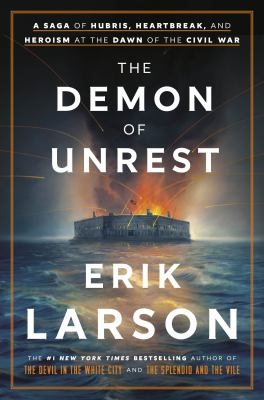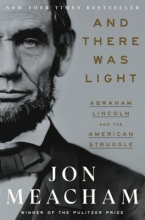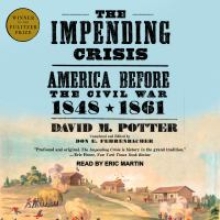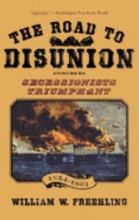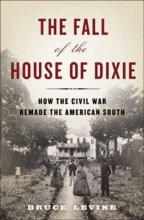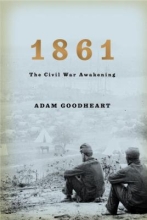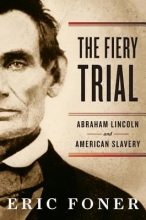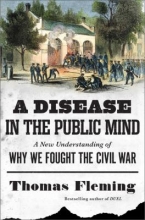The Demon of Unrest, the latest work by bestselling historical nonfiction author Erik Larson, takes us to the months between the election of Abraham Lincoln and the eruption of the US Civil War. Though the question of slavery, and the future of the country, might never have been resolved through anything less than a war to pit brother against brother, Larson outlines how key figures in the Lincoln administration, and across the nation, steered the country to its darkest moment. Fans of Erik Larson will appreciate the narrative quality he brings to his works, treating the months leading up to the firing on Fort Sumter as a rising action with a cast of characters many readers will know and some who readers will have heard about for the first time. Less famous by far than Lee or Grant, Major Robert Anderson is the commander of Fort Sumter. Born in Kentucky and sympathetic to the Southern cause, he is the first Union hero after a valiant attempt to withstand Confederate shelling of Sumter before eventually surrendering. Asked what drew him to this topic, Larson described the Civil War as the hubris of the country, the pride that went before the fall.
This book tells the story of Lincoln from his birth on the Kentucky frontier in 1809 to his leadership during the Civil War to his tragic assassination at Ford's Theater on Good Friday 1865: his rise, his self-education through reading, his loves, his bouts of depression, his political failures, his deepening faith, and his persistent conviction that slavery must end. In a nation shaped by the courage of the enslaved of the era and by the brave witness of Black Americans of the nineteenth century, Lincoln's story illuminates the ways and means of politics, the marshaling of power in a belligerent democracy, the durability of white supremacy in America, and the capacity of conscience to shape the maelstrom of events.
David M. Potter's Pulitzer Prize-winning novel, The Impending Crisis is the definitive history of antebellum America. Potter's sweeping epic masterfully charts the chaotic forces that climaxed with the outbreak of the Civil War: westward expansion, the divisive issue of slavery, the Dred Scott decision, John Brown's uprising, the ascension of Abraham Lincoln, and the drama of Southern secession. The Impending Crisis remains one of the most celebrated works of American historical writing.
Here is history in the grand manner, a powerful narrative peopled with dozens of memorable portraits, telling this important story with skill and relish. Freehling highlights all the key moments on the road to war, including the violence in Bleeding Kansas, Preston Brooks's beating of Charles Sumner in the Senate chambers, the Dred Scott Decision, John Brown's raid on Harper's Ferry, and much more. As Freehling shows, the election of Abraham Lincoln sparked a political crisis, but at first most Southerners took a cautious approach, willing to wait and see what Lincoln would do--especially, whether he would take any antagonistic measures against the South. But at this moment, the extreme fringe in the South took charge, first in South Carolina and Mississippi, but then throughout the lower South, sounding the drum roll for secession. Indeed, The Road to Disunion is the first book to fully document how this decided minority of Southern hotspurs took hold of the secessionist issue and, aided by a series of fortuitous events, drove the South out of the Union.
In this major new history of the Civil War, Bruce Levine tells the riveting story of how that conflict upended the economic, political, and social life of the old South, utterly destroying the Confederacy and the society it represented and defended.
1861 is an epic of courage and heroism beyond the battlefields. Early in that fateful year, a second American revolution unfolded, inspiring a new generation to reject their parents' faith in compromise and appeasement, to do the unthinkable in the name of an ideal. It set Abraham Lincoln on the path to greatness and millions of slaves on the road to freedom.
In a landmark work of deep scholarship and insight, Foner gives us a life of Lincoln as it intertwined with slavery, the defining issue of the time and the tragic hallmark of American history. The author demonstrates how Lincoln navigated a dynamic political landscape deftly, moving in measured steps, often on a path forged by abolitionists and radicals in his party, and that Lincoln's greatness lay in his capacity for moral and political growth.
By the time John Brown hung from the gallows for his crimes at Harper's Ferry, Northern abolitionists had made him a "holy martyr" in their campaign against Southern slave owners. This Northern hatred for Southerners long predated their objections to slavery. They were convinced that New England, whose spokesmen had begun the American Revolution, should have been the leader of the new nation. Instead, they had been displaced by Southern "slavocrats" like Thomas Jefferson. This malevolent envy exacerbated the South's greatest fear: a race war. Jefferson's cry, "We are truly to be pitied," summed up their dread. For decades, extremists in both regions flung insults and threats, creating intractable enmities. By 1861, only a civil war that would kill a million men could save the Union.
